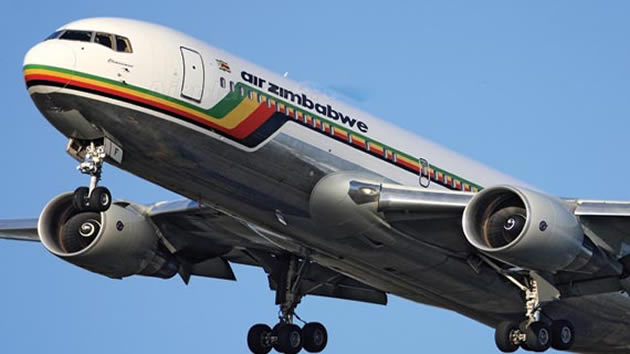Building block to a National Diasporan Policy

Nick Mangwana Correspondent
THE idea of a National Diaspora Policy is a step in the right direction. With the major wave of Zimbabwean emigration having happened in the last 14 years, coinciding with the West’s sanctions regime, one might even argue that this policy is long overdue. It however, faces a few challenges before it even starts. A more inclusive, collaborative and consultative approach will make the policy fit for purpose and not just another paper initiative that will die a still birth.
Diaspora involvement in this policy formulation might be what it takes to make the difference.
Before exploring the beauty of such a policy it is best to first confront what seems to be an attitudinal rift between those in the Diaspora and those at home from a social point of view.
In the next instalment we will then deal with the detail of the policy formulation and the politics itself.
There is a general resistance by the Diasporans on initiatives from our home country.
Zanu-PF structures outside have been in a privileged position to compare the attitude disparity between the constituent stakeholders.
Being Zanu-PF and briefed on policy matters helps one understand where the party in government is deriving its approach.
But the other hat of being a member of the Zimbabwean community in the Diaspora also gives insight to what those resident outside feel and what predicates those feelings.
The View from Zimbabwe
Nearly every family in Zimbabwe has a member in the diaspora and somehow might have benefited from having such a person out there.
However, the relationship between the Diaspora and the people at home can even be considered to be a love-hate one. The Diasporan is considered to be snobbish, patronising and “full of it”.
There are those who feel that some of the people in the diaspora who probably had no potential to make it in open competition at home have suddenly leapfrogged their contemporaries by merely leaving the country. They suddenly overachieved by attaining a social station beyond their wildest dreams.
Modesty decorum is not a value they espouse. They have since started to emit some airs and graces of being better than those that remained at home.
Their attitude when they come home and on social media has been show-offish and in some cases downright crass.
The money they have obtained from menial jobs has not given them any class. From the time of our sabotaged Zimbabwe dollar, there were stories of people changing small amounts of hard cash in actions hardly described as altruistic they would buy everyone in a bar drinks while giving a long “been-to” brag to hangers on.
Recently the “Zvirikufaya” fad came on the scene.
There is light-hearted and even self-deprecating banter. In this category there is spoof, caricature and parody. This has been quite entertaining and humorous. However, there is that lump-throat generating flaunting of vanity that has reached some deeper levels of trivia and vulgarity lacking human and social decency.
This has probably helped to stoke the anti-Diasporan fires a bit more.
To this lot, if one adds the fastidious visitor from hell who resides with you for a duration during their visit to Zimbabwe the result is a social tragedy.
This individual arrives (mainly from South Africa and the UK ) and starts generating so much negative energy that the hosts begin to regret their mere presence.
They mourn and pine about everything from infrastructure to service delivery.
They are never complimentary about anything their own country offers or does. This is too much even to the host strongly opposed to a Zanu-PF government. They sit on high horses and all they talk about is how efficient things are where they live. They will grumble about electricity. They will groan about the sewage and gripe about the water system.
On the way to a trendy club they will be whining about potholes. When they get there they will remark that the club is too stuffy. Nothing seems to be ever good enough.
The negative energy they generate is unbearable. The hosting relative begins to wish them away and yearns to go back to normal life. Of course, the host would be going out of their way to make their guest as comfortable as possible.
However, the mourning and the humongous attitude never makes it any easier.
The worst ones are those socially blogging their out of context derisory remarks. It is probably these live micro bloggers that do more damage to relations between the Diasporans and those at home.
It is this type of disposition that breeds a predictable resentment for the Diasporan. Very few people can stand a show-off. Even though these negative comparisons are not aimed directly at the host, they can easily be taken personally.
Those hosting a Diasporan relative would then joke or share their experience with another relative or friend and they will compare their experiences.
God help the Diasporan who prematurely runs out of money because of some ostentatious lifestyle and has to borrow from the host!
The stories go viral and one can easily see how a whole negativity develops.
Then there is the issue of the Diasporan who half-heartedly thinks of settling back home but has no staying power.
A little challenge and they are on the next plane back to their Diaspora base. If they were on a joint venture with someone at home, they don’t care how their bailing out would affect the partner at home. With such an attitude one sees part of the reason why there was some opposition to dual citizenship.
Surely, you can’t get into a business with someone who has another fall back while your own life and family well-being depends on that venture and that venture only. To this group one can add the variant who wants to have their cake and eat it.
They expect a relative at home to make money for them in Zimbabwe whilst they enjoy a cushy life and normal family life in the Diaspora.
This is just fanciful dreaming which will turn into a nightmare.
View from the Diaspora
The Diasporans feel very much unappreciated. They send orphaned children from the extended families to school. They have helped at every level including mundane expenses such as furnishing their siblings houses. They finance all family events and ceremonies. Those that left their children with close family members including parents feel that those children are not looked after to a level that justifies the amount of money they send back home for their upkeep (of course money does not look after children). The one theme that is discussed in most Diasporan social gatherings is the perceived dishonesty and greed of the people in Zimbabwe.
Nothing is ever as straight forward. Nothing really ever costs what is reported. Somehow when there is a Diasporan involved goods and services just experience an astronomical surge in price. Despite this selective inflation some things never get delivered.
The legend of the house that was never built is another leitmotif. Despite the Diasporans tipping generously, it seems their agenda is never priority and progress reports should be taken with a full seasoning of salt.
A lot of relationships have soured because families have fleeced each other. The biggest surprise is the stories of how greedy one’s parents have become. They distort reports and take advantage of their own. One would like to think that the biggest reward for any parent is the success of their child.
But no.
Some are reported to have lost their moral compass to avarice.
Children in the Diaspora feel that it is no longer about being the succour for one’s parents but a cash cow.
Siblings and cousins send not so polite requests for cash for projects that never see the light of day.
The language is very convincing, flowery and optimistic. Every project is painted as so lucrative until the excuses start rolling in once a disbursement has been made. To this, add the ignorant perception that every Diasporan, especially those from the UK cleans old people’s backsides then the gap widens even further.
This type of an insult really gets to the Diasporan. One is yet to see of a joint venture between a person in the Diaspora and one at home where remittances from the project income have gone the other way. It might happen for a couple of months as a sweetener to entice the Diasporan to invest more.
But as certain as the sun rise from the East, these will quickly dry up. More demands for money to repair that kombi, truck or compressor will become a daily occurrence. How it breaks down when it was not generating any money is a mystery.
The Diasporan investing partner is perceived as a ‘donor’ rather than a business investor expecting a return.
Fake but glamorous reports will suck in the Diasporan to keep on pumping in money. By the time the Diasporan realises what is happening they are probably in debt or have messed up their domestic situation so much that they are probably divorced.
A lot of the Diasporans grew up in a Zimbabwe where stealing was frowned upon. But stealing from family would be a more than sure way of being ostracised as a pariah by the family and community. Now stealing from family members in the Diaspora is fashionable enough to warrant a boast. You hear euphemism like rangu ramhanya (the horse I placed a bet on has just completed the race), meaning the Diasporan I was selling hot air to has just taken the bait.
Society seems to have just shifted its definition of dishonesty and appended some exception that when it comes to the Zimbabwean in the Diaspora it does not apply. Greed and dishonesty should remain thus regardless of the location of the victim. When institutionalised is attacked, we should not ignore this abhorrent level too. Corruption is evidence of the decade of society’s values. Stealing from a relative just because they are in the Diaspora is just an example of corruption reaching the pits of hell. Not all remittances from the Diaspora are for social support. Some are for investments including property purchases. If the government wants to leverage these then a way has to be found to close the hiatus between the Diasporans and those at home.
A suggestion is; not seeing the Diasporan as a sell-out.
From the Diasporan side; desisting from coming across as sell-outs by lampooning everything about one’s country and society would help as well.
The uptake of any investment offers from home has to address these concerns and vexatious attitudes. A two way relationship has to be cultivated and any anxieties which are based on negative experiences have to be allayed. It is only through building trust and engagement that the country can benefit from its Diasporans.
It is in this social context that the formulation of a National Diasporan Policy has to be conducted. Account of social attitudes from both groups of these patriotic Zimbabweans has to be considered. Policies and programmes are not run in a vacuum. The relationship between Zimbabwe and its Diasporans can only blossom if the trust issues currently bedevilling both parties can be assuaged. The disparity at grassroots level has already started receding because of the embrace the Diasporans are getting from the echelons of the party of government, however, more still needs remains to be done.







Comments